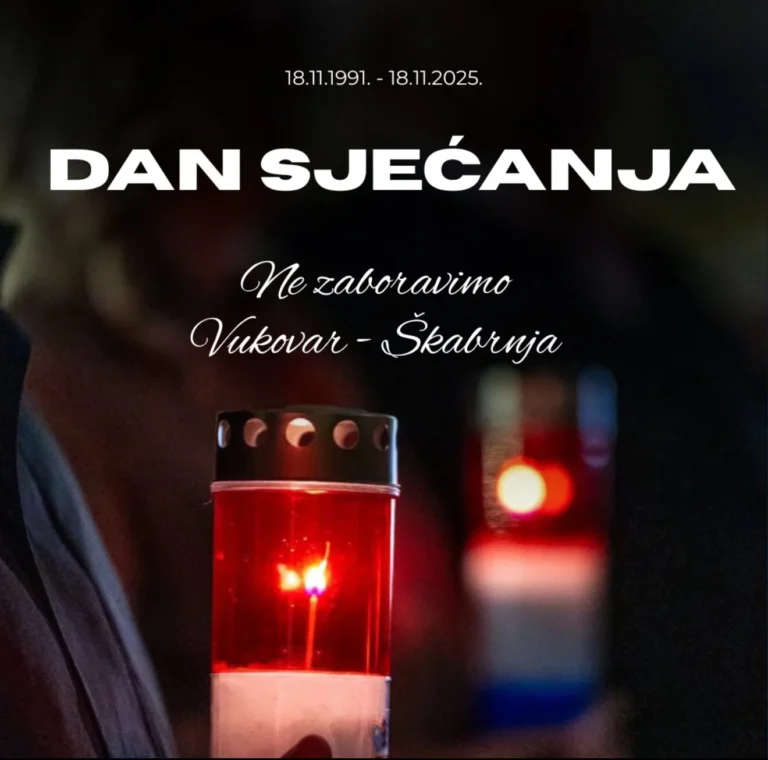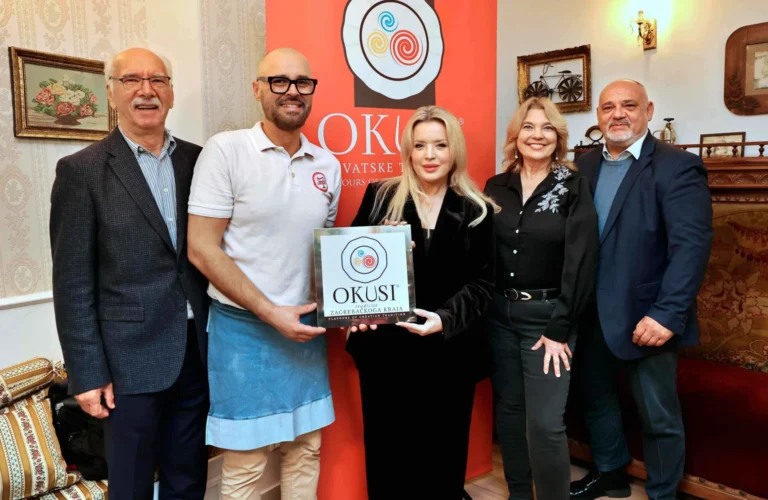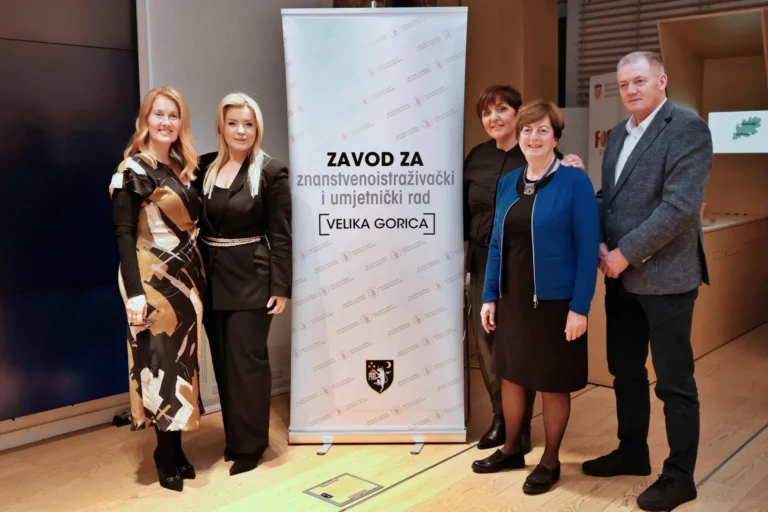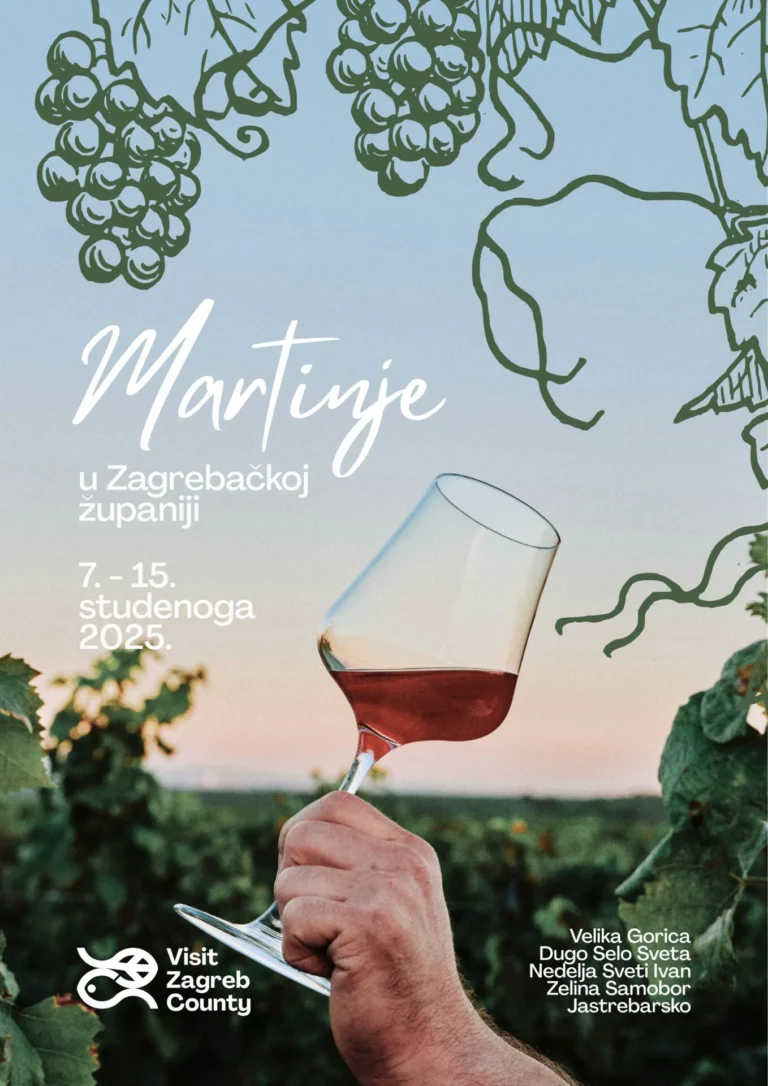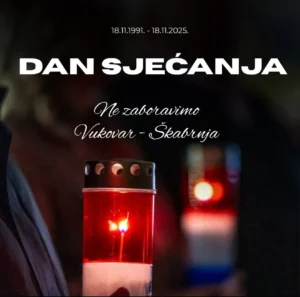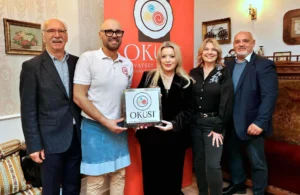On Wednesday, a significant discussion on sustainable tourism in Croatia occurred at the University of Applied Sciences Velika Gorica. The event was organised by the Zagreb County Tourist Board and the University of Applied Sciences Velika Gorica, with support from the Ministry of Tourism and Sports, the Ministry of Internal Affairs, and the City of Velika Gorica. The expert meeting featured presentations from distinguished speakers, including Robert Kopal from Effectus Entrepreneurial Studies at University College, Gabriela Abramović from Franjo Tuđman Airport, Davorin Štetner from HAKS, Slavko Štefičar from MINTS, and Božo Skoko from the Faculty of Political Sciences, contributing to the program's richness throughout the day.
During his opening speech, Deputy Prime Minister and Minister of the Interior Affairs, Davor Božinović, highlighted Croatia's status as a secure and appealing tourist destination. He acknowledged that tourism is a crucial economic sector in Croatia, which has witnessed growth in activity over the past decade, surpassing other Mediterranean countries. Božinović also stressed the critical role of the Croatian police in promoting the image of a safe tourist destination. He noted that tourists prefer to visit beautiful and secure locations.
Tourism is more than just a concept on paper for us in Zagreb County. It’s at the centre of all our endeavours. This is evident from our destination certification process in partnership with Green Destinations, our hosting of specific events such as WRC Croatia, and other initiatives throughout our green ring. These were the words of Ivana Alilović, Director of the Zagreb County Tourist Board, during the inaugural edition of this professional gathering.
The expert meeting commenced with an engrossing lecture from Associate Professor PhD—Robert Kopal regarding the prevalent cybersecurity challenges in tourism. Professor Kopal emphasised that cyber security poses a significant business risk in the 21st century, and most businesses invest in this aspect only after experiencing a security breach. We learnt from the panel that 43% of individuals use identical passwords for all their internet accounts.
A panel discussion was held on a particular topic and attended by Professor Kopal, two business experts,Gabrijela Abramović - the quality manager of Franjo Tuđman Airport, and Domagoj Vrban - the executive director of Garden Hill Hotel. Davorin Štetner, the President of the Croatian Auto Karting Association, presented a case study of the highly successful WRC Croatia event held in the green ring of Zagreb County. Štetner emphasised the need to prioritise safety following the unfortunate incidents during the last edition of WRC, which almost resulted in the loss of seven lives. As a result, he decided to implement more stringent internal safety regulations the following year.
The meeting was well-organized with solid support from the Minister of Tourism and Sports, Nikolina Brnjac, who emphasised the importance of directing Croatian tourism towards sustainability. Climate changes and sensitive resources call for sustainable practices, and the local population has also experienced negative impacts from tourism development. The Ministry has laid the foundations for future growth through the Strategy for the Development of Sustainable Tourism until 2030 and the National Plan for the Development of Sustainable Tourism. The Minister also mentioned that the tourism sector has secured significant financial resources of 1.3 billion euros - the highest amount ever.
During the second part of the program, a group of experts and science representatives engaged in two enlightening discussions. The first discussion was centred on the challenges of ensuring sustainability in tourist destinations. The panellists included Prof. PhD. Sanja Kalambura from the University of Applied Sciences Velika Gorica, Asst. Prof. Ph.D. Katarina Miličević representing TourismLab, Slavko Štefičar from the Ministry of Tourism and Sports, and Ivana Alilović from the Zagreb County Tourist Board. Alilović emphasised the importance of providing top-notch and inventive sustainable tourism, and the Zagreb County Tourist Board has already initiated the Green Destinations certification process. Miličević, the director of TourismLab and the exclusive representative of Green Destinations in Croatia explained that the most challenging stage in certification is the adaptation of activities and operations to sustainability. During the panel discussion, Štefičar, the Director of Administration at the Ministry of Tourism and Sports, underscored the significance of involving stakeholders in acclimating to new trends. Prof. Ph.D. Sanja Kalambura also deliberated on the direction of waste prevention, the use of food in gastronomy, and the education of all destination personnel. During the second part of the program, a group of experts and science representatives engaged in two enlightening discussions. The first discussion was centred on the challenges of ensuring sustainability in tourist destinations. The panellists included Prof. PhD. Sanja Kalambura from the University of Applied Sciences Velika Gorica, Asst. Prof. Ph.D. Katarina Miličević representing TourismLab, Slavko Štefičar from the Ministry of Tourism and Sports, and Ivana Alilović from the Zagreb County Tourist Board. Alilović emphasised the importance of providing top-notch and inventive sustainable tourism, and the Zagreb County Tourist Board has already initiated the Green Destinations certification process. Miličević, the director of TourismLab and the exclusive representative of Green Destinations in Croatia explained that the most challenging stage in certification is the adaptation of activities and operations to sustainability. During the panel discussion, Štefičar, the Director of Administration at the Ministry of Tourism and Sports, underscored the significance of involving stakeholders in acclimating to new trends. Prof. Ph.D. Sanja Kalambura also deliberated on the direction of waste prevention, the use of food in gastronomy, and the education of all destination personnel.
Respected scholars, including Prof. PhD. Božo Skoko from the Faculty of Political Sciences at the University of Zagreb, Ph.D. Dejan Gluvačević from the Edward Bernays University of Applied Sciences and Ph.D. Martina Mihaličić from the University of Applied Sciences Velika Gorica gathered to discuss communication challenges tourist destinations face. Professor Skoko highlighted Croatia's natural beauty, including the exciting news that Eurostat declared Croatia to have the cleanest sea in Europe. He also emphasised the importance of branding, premium tourism, and local, authentic offerings. Dr Mihaličić noted that sustainable tourism faces many challenges, but timely information and effective promotion to tourists are crucial. Dr Gluvačević stressed the significance of sustainability in modern tourism and the need for all tourism personnel to educate themselves and implement sustainable practices in Croatian tourist destinations.

